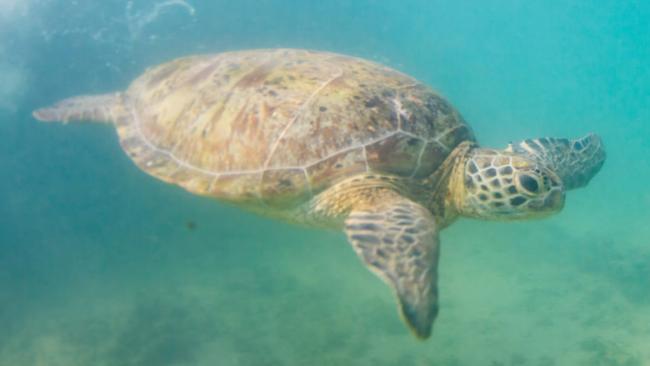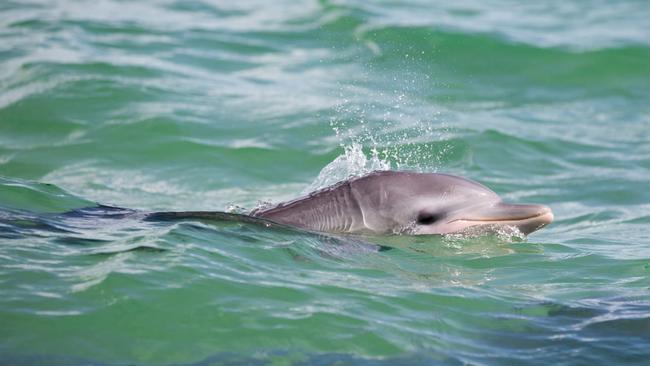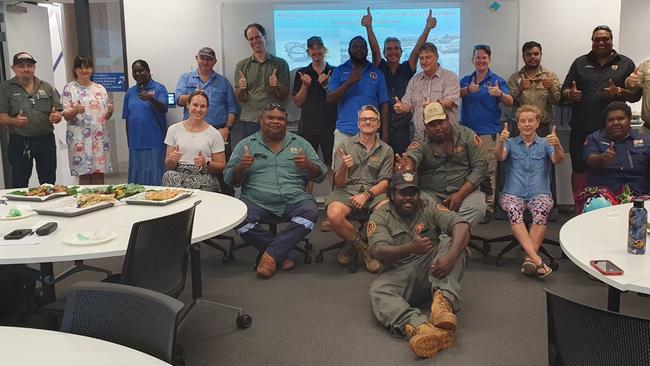Marine expert who put NT’s dolphins on the map said the Territory should not be overlooked
Dr Carol Palmer, who has spent the last 30 years in conservation in the NT, questions if more can be done to protect the Territory’s unique marine life as sea levels rise.

Education
Don't miss out on the headlines from Education. Followed categories will be added to My News.
Early on her career, Dr Carol Palmer carried out land-based field research from crocodiles to endangered birds.
She helped identify the golden bandicoot as the last remaining bandicoot on the Wessel Isles with colleagues when she arrived in Darwin in the 90s and did her Masters on black flying foxes.
But at heart, Carol said she has always been a sea person.
Growing up in Sydney, she would often swim along the city’s famous beaches with her parents and in her spare time, has racked up over 30,000 nautical miles on her yacht.
With a lot of Sea Country work and research and as a coxswain early on, Carol said there were very few women in her position.
“There’s just fewer and fewer women in that role right now,” she said.
“But I think the more and more they see the women as the skipper, that’s really good for the younger women and men.”

When she was given the green light to carry out dolphin research in 2007 after the Australian snub fin dolphin was logged as an endemic species (a species found exclusively in a specific geographic location), she could not have been happier.
The senior research associate in cetaceans and marine megafauna at CDU’s Research Institute for the Environment and Livelihoods (RIEL) became the first person in the Northern Territory to do any work on dolphins and whales.
Flagging the research as a major highlight in her 30 year career, Carol said: “I’m still the first person in the Southern Hemisphere to have actually satellite tagged six false killer whales [which are actually dolphins] and they’re fantastic.”
Through the tagging taught by Robin Baird in Hawaii, the team recorded one travelling 7,500km just across northern Australia during a five-month period.

In 2023, Carol identified that the northern Australian false killer whales are a unique coastal species and over the last five years has also been researching green and hawksbill sea turtles.
Concerns over the NT Sea Country’s future
The Northern Territory boasts a varied collection of dolphins, dugongs and whales including orcas, dwarf spinner dolphins and humpback whales.
Carol said: “But I still have people here in the Northern Territory say to me, ‘Wow, you mean we’ve got dolphins and whales here?’ And I say, ‘Yes, we do.’”
She explained the Northern Territory is a unique environment due to the shallow waters, corals and climate.

But due to its remoteness, carrying out research can be challenging and expensive. Especially when the State tends to be “bottom of the pile” when it comes to funding.
“Yet we are just as important,” Carol added.
“From the foraging areas, the species, where they give birth, all that kind of thing.
“But really a lot of the time we’re not really acknowledged as just as important as the East and the West Coast, with our beautiful marine megafauna here in the Northern Territory.”
Carol explained that working with traditional owner rangers who hold essential traditional information and combining it with Western research in the NT has been “a really good step forward”.

But when talking about hopes for the future, Carol mentioned the recent release of the documentary David Attenborough: Ocean in which the wildlife presenter highlights the ocean’s vital importance and exposes the problems of climate change.
Carol added: “I would say that is exactly the same as how I feel.
“All of us have flagged that climate change is really kicking in up here in the Northern Territory, in our Sea Country.
“With the traditional owners and my researchers and team members, we are seeing sea level rise, sea temperature rise and erosion because we are the tropics. We’re a very unusual place in Australia and we have seen a decline in a number of our most beautiful little coastal dolphin species.
“We just want to work together to try and identify all the things that need to be identified so that we can look after this most beautiful Sea Country, and all the marine megafauna and the traditional areas.”
Charles Darwin University is a sponsor for NT News Woman of the Year award. s




